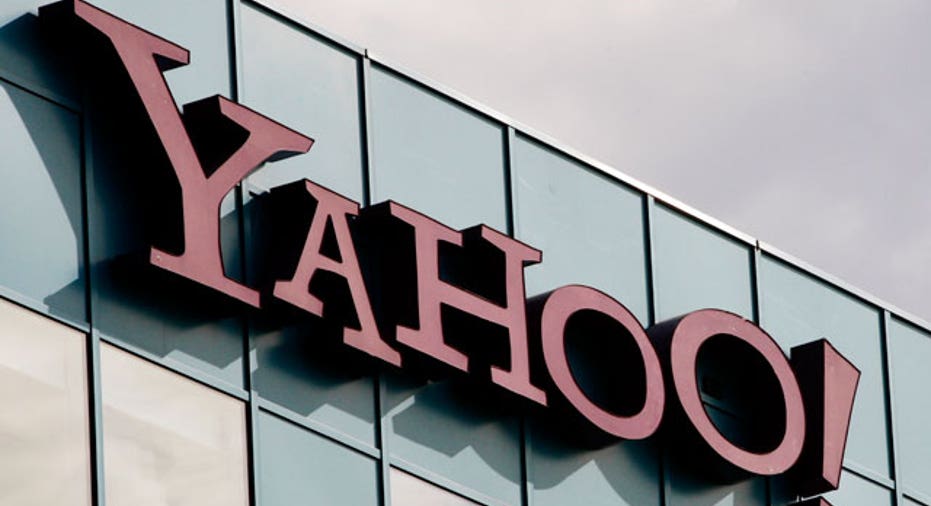Yahoo Lines Up Bids for About 3,000 Patents

Yahoo has kicked off an auction for a portfolio of about 3,000 patents expected to fetch more than $1 billion, according to people familiar with the matter.
In recent weeks, the internet company sent letters to a range of potential buyers for the patents, which date back to Yahoo's initial public offering in 1996 and include its original search technology, one of the people said.
Yahoo has set a mid-June deadline for preliminary bids, this person said, and hired Black Stone IP, a boutique investment bank that specializes in patent sales, to run the auction.
A Yahoo spokeswoman confirmed the company is exploring the sale of about 3,000 patents and pending applications. "This represents a unique opportunity for companies operating in the internet industry to acquire some of the most pioneering and foundational patents related to web search and advertising," she said in a statement.
Yahoo is launching the patent sale in the midst of a high-profile auction for its core web business. Verizon Communications, seen as the leading contender, bid about $3 billion for the internet properties before the Monday deadline for second-round bids, a person familiar with the matter told The Wall Street Journal.
That figure may be lower than initial estimates on the value of Yahoo's core business -- which analysts said could fetch from $4 billion to $8 billion -- in part because Verizon isn't bidding on the bulk of Yahoo's most valuable patents.
In April, Yahoo assigned 2,659 patents to a separate subsidiary called Excalibur IP LLC, according to a filing with the U.S. Patent and Trademark Office. That action, seen as a step toward a patent sale, occurred on the same day as the deadline for first-round bids in the auction for Yahoo's core business.
The trove of Excalibur patents cover key areas such as search, e-commerce and online advertising, including a patent related to ad-matching technology that was at the center of a legal dispute between Yahoo and Alphabet's Google. That technology, which matched online ads to Web-search results, was developed by Overture, an online ad company that sued Google in 2002 for patent infringement before being acquired by Yahoo a year later. Yahoo and Google settled in 2004, with Google giving Yahoo stock worth more than $300 million in exchange for a perpetual license to Yahoo's ad-matching technology.
A Yahoo spokeswoman said the company is offering a smaller group of patents -- 500 U.S. patents and over 600 U.S. pending applications -- as part of the auction of its core web business. Those patents are seen as necessary to the underlying technology of Yahoo's web properties, people familiar with the matter said.
The company has invited strategic buyers, private-equity firms, and investment firms focused on intellectual property to submit bids, the person said. It is unclear how many parties are interested.
Alphabet and Microsoft are among the obvious potential buyers for Yahoo's patents, said Maulin Shah, managing attorney at Envision IP, a Raleigh, N.C., law firm that specializes in patents. Alphabet and Microsoft didn't immediately respond to requests for comments.
In April, Mr. Shah appraised about 2,000 of Yahoo's enforceable patents and estimated them to be worth $965 million to $1.34 billion, based on a variety of factors including the company's historical patent licensing revenue.
Yahoo said in February it was exploring divesting nonstrategic assets, including patents and real estate, which the company estimated could generate between $1 billion and $3 billion in cash this year. The company has already collected about $600 million from patent sales and licensing fees in the past three years.
Patent sales are notoriously unpredictable and prices can often be bid up depending on whether a company's patents can be asserted against other companies in lawsuits or if patents are considered strategic.
In 2011, Nortel Networks sold a trove of wireless patents for $4.5 billion to a group of bidders including Apple, Microsoft, BlackBerry, EMC Corp. and Sony. The deal marked one of the highest-profile bidding wars for patents that pitted the so-called "rockstar consortium" against Google, which was the stalking horse bidder, originally submitting a bid for around $900 million for the same set of patents.
When Eastman Kodak puts its portfolio of patents covering digital photography and web-based photo applications up for sale, it expected a similarly frothy auction. The imaging company used the patents to sue a bevy of technology companies and licensing from the patents brought in $1.9 billion in revenue for Kodak from 2008 to 2010. While the auction attracted a number of high-profile technology companies such as Apple and Google, the portfolio eventually sold for just $525 million to patent buyer Intellectual Ventures LLC.
Write to Douglas MacMillan at douglas.macmillan@wsj.com and Dana Mattioli at dana.mattioli@wsj.com



















